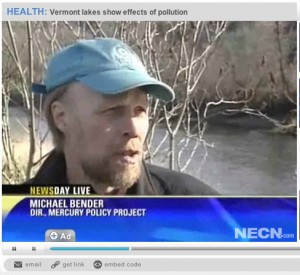Global NGO’s ask the World Health Organization (WHO) to consider the health and environmental impact from continued use of dental mercury fillings. Because effective global control of mercury releases from dental mercury would be extraordinarily difficult and inordinately expensive, they urge the WHO to recommend the use of viable mercury-free alternatives to all countries. The letter to the WHO was signed by over 70 non-governmental environmental and health organizations from around the world.
Michael Bender, on behalf of Mercury Policy Project and Zero Mercury Working Group, presented at the World Health Organization’s Dental Restoration Materials Meeting. He discussed the role of UNEP Mercury Storage-Supply Partnership in reducing dental mercury exposure worldwide. Bender pointed out that reducing the supply, demand, and trade of mercury is more effective than trying to control releases.
